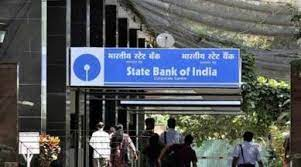CURRENT AFFAIRS
Get the most updated and recent current affair content on Padhaikaro.com
Electoral Bonds
- IAS NEXT, Lucknow
- 04, Feb 2022

Reference News:-
Electoral bonds worth ₹1,213 crore were sold by the SBI in January.
- Most of them (₹784.84 crore) were encashed in the New Delhi branch, pointing towards national parties, while the Mumbai branch sold the most (₹489.6 crore worth).
What are electoral bonds?
- Electoral Bond is a financial instrument for making donations to political parties.
- The bonds are issued in multiples of Rs. 1,000, Rs. 10,000, Rs. 1 lakh, Rs. 10 lakh and Rs. 1 crore without any maximum limit.
- State Bank of India is authorised to issue and encash these bonds, which are valid for fifteen days from the date of issuance.
- These bonds are redeemable in the designated account of a registered political party.
- The bonds are available for purchase by any person (who is a citizen of India or incorporated or established in India) for a period of ten days each in the months of January, April, July and October as may be specified by the Central Government.
- A person being an individual can buy bonds, either singly or jointly with other individuals.
- Donor’s name is not mentioned on the bond.
Issues associated with the scheme:
The Electoral Bond Scheme acts as a check against traditional under-the-table donations as it insists on cheque and digital paper trails of transactions, however, several key provisions of the scheme make it highly controversial.
Anonymity: Neither the donor (who could be an individual or a corporate) nor the political party is obligated to reveal whom the donation comes from.
Asymmetrically Opaque: Because the bonds are purchased through the State Bank of India (SBI), the government is always in a position to know who the donor is.
Channel of Blackmoney: Elimination of a cap of 7.5% on corporate donations, elimination of requirement to reveal political contributions in profit and loss statements.